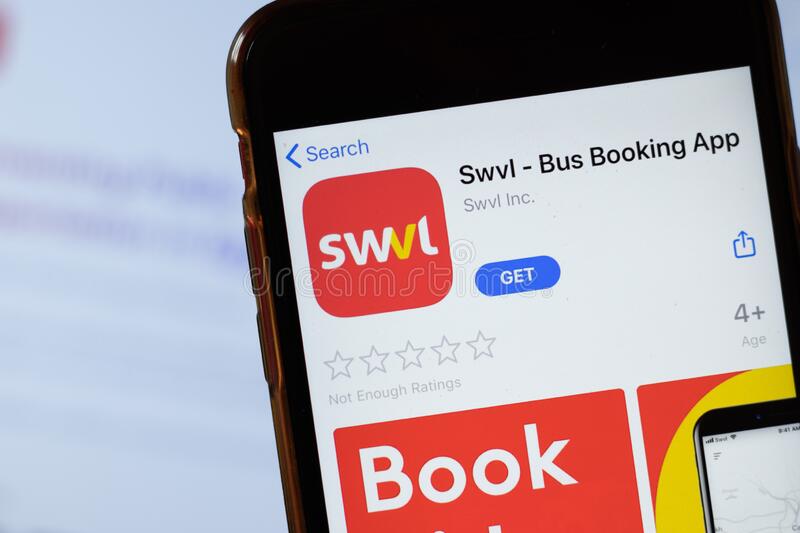How Egyptian SWVL is Spreading its Tentacles in the Global Mobility Space

The past decade has seen mobility and logistic startups improve on safety, performance, and sustainability measures. These improvements have seen improved user-satisfaction as startups try to meet the growing demand for flexible mobility options. Although e-commerce has driven a majority of these demands, one cannot overemphasize the efforts these mobility startups. For SWVL, the core of its service is to provide timely, affordable and most comfortable mass transportation.
Mostafa Kandil and two of his school friends, Ahmed Sabbah and Mahmoud Nouh, co-founded Swvl in Egypt in April 2017 with $30,000 of their own money. Careem, a ridesharing company, invested $500,000 after four months. Swvl began developing an app to alleviate traffic congestion in Cairo, but later shifted its focus to creating a platform.
Swvl offers ride-hailing services with a focus on public transportation. Customers can reserve and pay for rides on fixed-route private buses using the app. The company’s proprietary algorithm calculates the quickest trip time based on the passenger’s location and destination. The services offer dependable alternatives to public transportation without the costs associated with individual ridesharing options. Additionally, the technology allows for greater efficiency than public transportation, resulting in lower emissions. Swvl also offers intercity transportation, car ride-sharing, and corporate services.
Swvl has been committed to enabling cities, people and businesses to move everywhere. The mobility startup’s primary focus is eliminating the hassle in boarding public transportation. Its buses offer passengers legroom and entertainment, including updates on bus location. Last year, Swvl partnered with Blockchain technology company, Concordium, to enable Blockchain payment for its customers.
Going Public
Swvl signed a merger agreement in July 2021 with the special purpose acquisition company (SPAC) Queen’s Gambit Growth Capital, the first SPAC led entirely by women. As part of the agreement, Queen’s Gambit CEO Victoria Grace and another executive were appointed to Swvl’s board of directors, while two other SPAC members were appointed to Swvl’s advisory board.
Swvl was valued at $1.5 billion in the transaction, making it the largest Middle Eastern unicorn to go public on the Nasdaq. It also became the first tech-enabled mass transit solution to be listed on any stock exchange. Swvl raised $121.5 million in private investment in public equities as part of the transaction (PIPE). Agility, Chimera, the European Bank for Reconstruction and Development (EBRD), Luxor Capital, Teklas Ventures, and Zain were among the PIPE investors.

Mostafa Kandil, the co-founder and CEO of Swvl, had noted that the startup succeeded in executing its business plan. He noted that some emerging markets were cumbered with inefficiencies in infrastructure, and partnering Queen’s Gambit will help accelerate Swvl’s long-term growth plans.
“With their partnership, as a public company, we will expand our daily commuting offerings and enterprise TaaS services. This will remove barriers to seamless mobility for the populations that need it most. In doing so, we will create even greater value for all stakeholders and continue innovating best-in-class technology solutions. This will in-turn improve the universal, daily struggle of mobility for so many,” said Kandil.
Funding and Expansions for
Swvl
Swvl completed its Series A and Series B funding rounds in 2018, involving BECO Capital of Dubai, Africa-based investor DiGAME, and Silicon Badia. The startup hit a $100 million valuation from both rounds. Swvl was able to expand into Kenya in early 2019, while also partnering with BRCK to provide free wifi on its buses.
The company raised $42 million in June 2019. The funding came from Sweden’s Vostok, Dubai’s BECO Capital, China’s MSA, New York’s Endeavor Catalyst, Palo Alto’s Autotech, and the Oman Technology Fund. It then expanded into Pakistan, beginning with Lahore in July 2019, and Jordan, beginning with Amman in November 2019. It also began operations in Nigeria’s commercial capital, Lagos, also in 2019.
Swvl secured over $20 million in 2020, with both existing and new investors taking part in the round. Swvl made a number of acquisitions shortly after the SPAC merger announcement, expanding into Europe and Latin America. The startup acquired Shotl, an on-demand ride service that uses shuttles in Europe and Brazil, in August 2021. It also acquired ViaPool, a private-public hybrid mass transit company with operations in Argentina and Chile, in November 2021. Swvl acquired Door2door, a Berlin-based software company that licenses its technology to cities, transportation companies, and private providers across ten European countries, in March 2022.
Swvl’s most recent expansion to the UK came by the startup’s acquisition of United Kingdom-based largest smart bus platform, Zeelo. Swvl will use Zeelo’s well-known dedication to pushing the move from single-occupancy vehicles to zero-emission mass transit. It will also deploy its mobility services to link more people to job and educational opportunities
